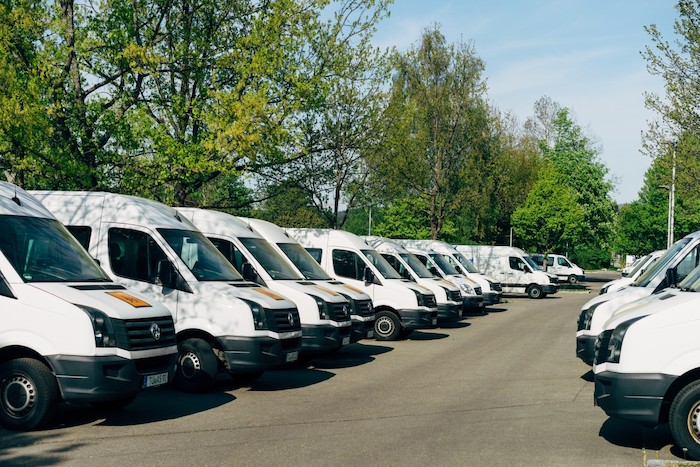Questions to Ask Before Purchasing a Car for Business

Purchasing a car for business or work purposes is significantly different from purchasing a luxury car or buying a car for private use. That’s because you will most likely be using your business car every working day, much more often than your typical family car.
As you might expect, there are many car options in the market. That means there are also more than a few extra variables to consider before selecting a business car. For example, a great choice for business people looking for a mid-sized SUV is the all-new MG HS. Car experts and MG HS reviews and testimonials online will attest to the value this car can provide.
However, if you don’t have the proper knowledge and awareness of what to look for in a vehicle for work or business purposes, you risk picking a car that is not the best match for your business, or a vehicle that you just don’t care much for and later regret buying.
Fundamental Questions to Ask When Buying a Business Vehicle
To help you set yourself on the right path to finding the best car for business, here’re fundamental questions to ask before you part with your hard-earned money to buy the car:
1. What Impression/Look Do You Want to Give?

If your line of work or business entails driving to meet and interact with business executives and high-end customers, you’ll likely dress in high-end coats and other sleek business apparel.
In that case, you’ll want to find a car that matches that sharp, profession look, reflects favorably on your appearance, and indicates a high level of class and professionalism.
Similarly, if you were meeting high-end executives or potential partners and you are driving a tiny, second-rate, or outdated vehicle, it surely would not reflect well on you or leave the best possible impression on the other person.
Aim to purchase a business vehicle that properly matches the look and impression you want to give while performing your business activities.
2. Is the Car Environmentally Friendly?
Consider also the sustainability or environmental friendliness of the vehicle or vehicles you pick. These days, a huge gas-guzzling vehicle with high air pollution levels may not reflect very well on your company in light of the present need to ensure net-zero emissions and make modern businesses environmentally friendly to curb climate change.
Another reason to choose an environmentally friendly business car is the additional expenses that come with high-pollution cars; the greater the level of emissions, the larger your tax burden will be. If multiplied over a fleet of cars, the total cost may pile up pretty quickly.
Choose low-emissions vehicles where applicable, such as hybrid and electric vehicles. Hybrid and electric vehicles are becoming more and more popular and are providing the same level (if not better) performance as their petrol or diesel vehicle counterparts.
3. What Will You Use the Car for?

Typically, business vehicles are SUVs, vans, and pickup trucks that are all ideal for different commercial activities. You should be clear what you’ll be using the car for to pick the right one.
Consider what you want to use the vehicle for when making a decision. For example, if your business or company car(s) will serve as a service for the company's employees, then you’ll need to find one with the right passenger carrying capacity and has good gas economy.
Good fuel economy is especially important when buying a car for business use to save on fuel costs. Use online miles-per-gallon calculators to check the fuel economy of each car you are considering. It could save your company a fortune.
4. How Do You Intend to Purchase/Pay for the Car?
The next question and consideration is how you want to pay for or acquire your business car. There are many options here, including paying the full amount for the car in cash/bank deposit, leasing the car for a predetermined period, and financing your business car purchase.
Whether you can afford to pay the full amount for the vehicle at once or invest in leasing vehicles that you swap on a fixed-term contract, you must first assess your financial situation objectively and determine the best option for you that will not unduly strain your finances.
The advantages and disadvantages of all purchase options are clear and readily available with a bit of research. Do your due diligence and consider them all carefully to make the right decisions.
5. Will You Be Reselling the Car?

It is also worthwhile to investigate the potential reselling value of the business vehicle or vehicles before purchasing them. Certain car models keep their worth better than others, which might make for a better choice if you plan on reselling the business car later.
For example, Subaru ranks number #1 in retained value after 3, 5 and 7 years of ownership. Toyota, Dodge, Honda, and Ram car brands also do very well in maintaining their value, consistently ranking at the top of popular brands for resale value after five years.
6. Is the Internal Tech and Systems Up to Par?
When purchasing a vehicle for business, it makes perfect sense to choose a car that has built-in functions and technology that will assist your company to be more effective, such as GPS, telematics for fleet management, blind mirror, sensors, camera, and so on.
Advanced vehicle systems, technologies, and apps can assist in improving safety on the road, alerting the driver and occupants of dangerous driving, as well as provide company managers the ability to track the location of vehicles and keep private and work-related driving distinct.
Telematics systems fitted in the business car also help insurance firms collect information about your mileage and driving habits so that they can provide you with decent savings on corporate car insurance of up to 10% when you enroll and participate in their telematics program.
Depending on how you want to use the business car and your preferences, consider the tech and systems fitted in the car carefully, including checking for a good infotainment system if that’s important to you. It can help you avoid investing money in extra amenities and save a lot of cash.
Conclusion
Buying a car is a big investment. Before purchasing a car for business, consider all of the points mentioned above, including the reputation and impression you want to project for yourself and your company, the costs involved, eco-friendliness, and how much you can spend for the car.
The advantages to taking time to choose the right vehicle for business are many and worthwhile. Perhaps, the biggest advantages of buying a business car (the right one) are the tax benefits you get. A business car also allows you to avoid impact on your personal auto insurance plan.
So, answer those key question before purchasing a business car and you’ll be in a better position to determine which car is best and most appropriate for your business and requirements.













![Over 50% of American Adults Have Not Read a Book in Past Year [Study]](/sites/default/files/styles/video_thumbnail_bottom/public/older-man-reading-book-in-library.jpg?itok=m7DlbWgZ)






